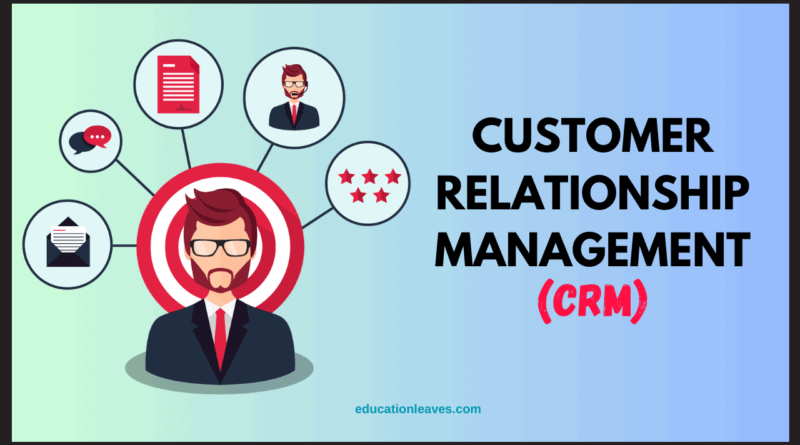Customer Relationship Management (CRM) [PDF Inside]: Functions, Benefits, Limitations, and related Tips
Customer relationship management (CRM) is a strategy that organizations use to manage interactions with customers and potential customers. CRM helps organizations streamline processes, build customer relationships, increase sales, improve customer service, and increase profitability.
A CRM system is a tool that helps organizations manage customer relationships across the entire customer lifecycle, from lead generation to customer support. CRM systems typically include features for contact management, sales tracking, customer service, and marketing automation.
CLICK HERE TO LEARN ABOUT THE 5 BEST CRM SOFTWARE>>>>
What you are going to learn?
What does a CRM do?
A CRM system helps businesses manage and track their interactions with customers and potential customers. CRM systems typically include features for contact management, sales tracking, customer service, and marketing automation.
Here are some of the specific things that a CRM system can do:
Store and manage customer data:
CRM systems can store and manage a wide range of customer data, including contact information, sales history, purchase history, and customer preferences. This data can be used to track customer interactions, identify trends, and make more informed decisions about marketing and sales strategies.
Automate sales and marketing tasks:
CRM systems can automate a variety of sales and marketing tasks, such as lead generation, lead qualification, and email marketing. This can free up employees to focus on more strategic tasks and can lead to improved efficiency and productivity.
Track customer interactions:
CRM systems can track customer interactions across all channels, including phone, email, social media, and in-person meetings. This information can be used to identify customer pain points, provide personalized service, and improve customer satisfaction.
Provide insights into customer behavior:
CRM systems can collect and analyze data about customer interactions, trends, and behaviors. This information can be used to make more informed decisions about marketing, sales, and customer service strategies.
Improve customer service:
CRM systems can help businesses provide better customer service by providing a centralized repository of customer information, automating customer service tasks, and tracking customer satisfaction.
Increase sales:
CRM systems can help businesses increase sales by providing a better understanding of customer needs, automating sales processes, and tracking sales performance.
Overall, a CRM system can be a valuable tool for businesses of all sizes. By automating tasks, tracking customer interactions, and providing insights into customer behavior, CRM systems can help businesses improve customer relationships, increase sales, and reduce costs.
Benefits of Customer Relationship Management
Here are some of the benefits of using a CRM system:
Increased customer satisfaction:
CRM systems help organizations track customer interactions and preferences, which can be used to provide more personalized and timely service. This can lead to increased customer satisfaction and loyalty.
Improved sales performance:
CRM systems can help organizations track leads, opportunities, and sales pipeline. This information can be used to identify and target high-value customers and opportunities, and to improve sales forecasting and performance.
Reduced costs:
CRM systems can help organizations automate tasks such as lead generation, customer service, and marketing campaigns. This can free up employees to focus on more strategic tasks, and can lead to reduced costs.
Improved decision-making:
CRM systems can help organizations collect and analyze data about customer interactions, trends, and behaviors. This information can be used to make more informed decisions about marketing, sales, and customer service strategies.
Why a Business Should Implement CRM?
There are many reasons why a business should implement a CRM system. Here are some of the most important:
Increased customer satisfaction:
CRM systems help organizations track customer interactions and preferences, which can be used to provide more personalized and timely service. This can lead to increased customer satisfaction and loyalty.
Improved sales performance:
CRM systems can help organizations track leads, opportunities, and sales pipeline. This information can be used to identify and target high-value customers and opportunities, and to improve sales forecasting and performance.
Reduced costs:
CRM systems can help organizations automate tasks such as lead generation, customer service, and marketing campaigns. This can free up employees to focus on more strategic tasks, and can lead to reduced costs.
Improved decision-making:
CRM systems can help organizations collect and analyze data about customer interactions, trends, and behaviors. This information can be used to make more informed decisions about marketing, sales, and customer service strategies.
Improved visibility and transparency:
CRM systems provide a single source of truth for customer data, which can help improve visibility and transparency across the organization. This can lead to better decision-making and collaboration.
Increased efficiency and productivity:
CRM systems can automate many of the manual tasks involved in customer management, which can free up employees to focus on more strategic tasks. This can lead to increased efficiency and productivity.
Better compliance:
CRM systems can help organizations comply with regulations such as GDPR and CCPA. This can help protect the organization from fines and penalties.
Overall, a CRM system can be a valuable tool for businesses of all sizes. By automating tasks, tracking customer interactions, and providing insights into customer behavior, CRM systems can help businesses improve customer relationships, increase sales, and reduce costs.
Here are some signs that your business may be ready to implement a CRM system:
- You are growing your customer base and need a way to manage your growing customer interactions.
- You are not sure if you are targeting the right customers or if you are reaching them effectively.
- You are not sure how to track your sales pipeline or measure your sales performance.
- You are not sure how to provide personalized customer service or how to improve customer satisfaction.
- You are not sure how to make informed decisions about your marketing and sales strategies.
If you are experiencing any of these challenges, then a CRM system may be a good solution for your business.
Limitations of a CRM System
CRM systems are powerful tools that can help businesses improve customer relationships, increase sales, and reduce costs. However, CRM systems also have some limitations. Here are some of the most common limitations of CRM systems:
Data entry:
CRM systems require a lot of data entry, which can be time-consuming and tedious. If the data is not entered correctly, it can lead to inaccurate reports and insights.
Cost:
CRM systems can be expensive, especially for large businesses. The cost of a CRM system can include the software license, implementation costs, and ongoing maintenance costs.
Complexity:
CRM systems can be complex to use, especially for businesses with a large number of customers. If employees do not understand how to use the system effectively, it can lead to inefficiencies and errors.
Integration:
CRM systems need to be integrated with other business systems, such as accounting and inventory systems. If the CRM system is not integrated correctly, it can lead to data silos and inconsistencies.
Security:
CRM systems contain sensitive customer data, so it is important to ensure that the system is secure. If the system is not secure, it could be vulnerable to cyberattacks.
Despite these limitations, CRM systems can be a valuable tool for businesses of all sizes. By carefully considering the limitations of CRM systems, businesses can choose the right system for their needs and avoid potential problems.
Tips For Overcoming the Limitations of CRM Systems:
Automate data entry:
There are a number of ways to automate data entry into CRM systems. This can help to reduce the time and effort required for data entry and improve the accuracy of the data.
Choose a cost-effective system:
There are a number of CRM systems available at a variety of price points. Businesses should choose a system that fits their budget and their needs.
Train employees on how to use the system:
Employees need to understand how to use the CRM system effectively in order to get the most out of it. Businesses should provide training on the system to all employees who will be using it.
Integrate the system with other business systems:
CRM systems should be integrated with other business systems, such as accounting and inventory systems. This will help to ensure that data is consistent and accurate.
Implement security measures:
CRM systems contain sensitive customer data, so it is important to implement security measures to protect the data. This includes things like using strong passwords, encrypting data, and backing up data regularly.
By following these tips, businesses can overcome the limitations of CRM systems and get the most out of their investment.
Key Takeaways
Sure, here are 10 key takeaways from our discussion about CRM systems:
educationleaves.com
- CRM systems can help businesses improve customer relationships, increase sales, and reduce costs.
- CRM systems require a lot of data entry, which can be time-consuming and tedious.
- CRM systems can be expensive, especially for large businesses.
- CRM systems can be complex to use, especially for businesses with a large number of customers.
- CRM systems need to be integrated with other business systems, such as accounting and inventory systems.
- CRM systems contain sensitive customer data, so it is important to ensure that the system is secure.
- Businesses can overcome the limitations of CRM systems by automating data entry, choosing a cost-effective system, training employees on how to use the system, integrating the system with other business systems, and implementing security measures.
- CRM systems are not a magic bullet and they cannot replace human interaction or solve all of your business problems.
- The CRM system should be easy to use and navigate.
- The CRM system should be integrated with other business systems.
I hope this helps!
Conclusion
In conclusion, CRM systems are powerful tools that can help businesses improve customer relationships, increase sales, and reduce costs. However, CRM systems also have some limitations. By carefully considering the limitations of CRM systems, businesses can choose the right system for their needs and avoid potential problems.





Perfect